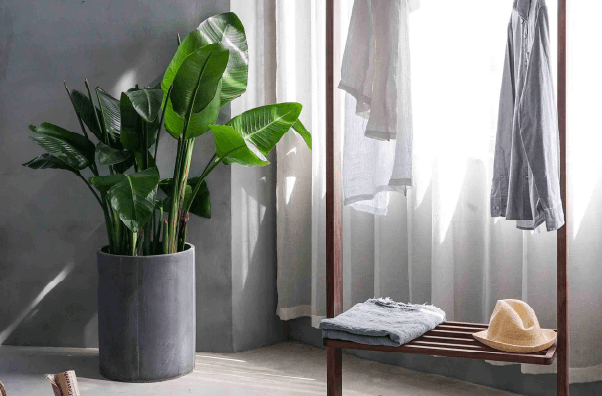Table of contents
Barely anything had changed in hospitality housekeeping over the past decades. But thanks to Covid, even departments that hadn’t seen big shifts in a long time had to adopt new processes.
Since we wrote about the future of hotel housekeeping a couple of years ago, one of the main trends was the push for more digitalization, especially in historically analog areas like housekeeping. Hoteliers started implementing new tools and procedures to reduce in-person contact and increase automation. Unsurprisingly, boosted efficiency was often a positive side-effect.
The question now is: will hotels go back to their old ways after the crisis? Or will these new approaches stick around?
Here at Mews, we think there’s a lot of potential, especially where automation in housekeeping is concerned. However, it’s crucial to ensure it benefits all parties including your business, staff, and guests to get the best results. So where to begin? This article explores these four areas:
- Your current housekeeping situation
- Manage and meet changing guest expectations
- Reducing costs and boosting efficiency through optimization
- Getting your team onboard
What’s your current hotel housekeeping situation?
Start by analyzing your status quo before you implement new tech tools in housekeeping (or any department). Here are a few things you should do:
- Leverage analytics to discover inefficiencies and bottlenecks you need to address. Tools like the Mews Activity Report will show you where a lot of time is spent or lost.
- Check reviews to identify common issues that guests are dissatisfied with. Do people frequently complain about rooms being ready too late? Or does it take too long to get extra towels?
- Ask your team what part of the operation they’re frustrated with. What do they think could improve their workflow?
This will give you a first idea of where to start optimizing. Now brainstorm new procedures with your team and research tech tools that can help you address the most pressing issues.
Below are some ideas to inspire you.
Managing and meeting guest expectations
Even before Covid-19, guests were beginning to expect earlier or more flexible check-in times. This meant the housekeeping team needed to turn rooms around faster, increasing the need for hotel housekeeping optimization tools like Alice or RoomChecking. They streamline communication and allow room attendants to easily update a room’s status, so that front office can offer rooms to guests as soon as they become available. Jonathan Weizman of RoomChecking says their hotel clients see 70% fewer internal phone calls and rooms are always ready on time.
Today, this trend persists, all while guests also have higher demands regarding cleanliness in rooms and public places. New research by P&G shows that 78% of guests consider cleanliness one of the most important factors today. This means that your approach to housekeeping has become something you can advertise.
You’ve probably already implemented more stringent hygiene procedures (if not, what are you waiting for?), but are you telling people about them? Take the steps below to give your new procedures visibility and show guests you’re taking their safety seriously.
- Include basic details about hygiene procedures on your home page
- Link to a dedicated page to your website with more in-depth information
- Leave a note in the room which states everything your attendant did
- Put up signs detailing your hygiene protocol and distancing for public areas
- Add a link to your cleaning protocols in your confirmation emails and pre-arrival emails
Use this as a chance to set and frame expectations. If your new procedures mean check-in times are later than usual, let guests know beforehand. That way there are no surprises.
Good communication is key to managing guest expectations, and that means a two-way street with your guests. Don’t just bombard them with emails that they can’t respond to – give them the option of sending instant, direct messages to your team, so they can easily query any of the new rules and your team can respond on the go. Mobile app platforms from Alice or Mews Housekeeping offer this service, while other contact-free options like TV or broadcast messages are available once guests are on premises.
Reduce costs while optimizing housekeeping efficiency
The past year brought an unparalleled loss of revenue for many hotels. While the ability to reopen is good news, you probably want to keep your costs as low as possible during ramp-up. Since housekeeping is a cost-intensive department and new hygiene procedures add expenses, optimization is more important than ever. Tech tools like Breezeway and automation are your best bet here, especially if these systems integrate with your hospitality system.
They allow you to:
- Improve internal communication
Your housekeeping team communicates with various other departments in your hotel including front office, maintenance and F&B. Mobile communication solutions like Mews Housekeeping, Flexkeeping, and Leviy create direct connections between your teams. This allows them to assign and follow up on tasks, update guest information and ensure nothing falls through the cracks because everything is saved and tracked.
“Our housekeeping team use tablets with Mews housekeeping app installed on them. This let’s them directly change the status of a room, or instantly notify us if there are any maintenance need.” Valentin Babilliot, Head of Digital & Distribution, JOE &JOE
- Streamline workflows
Housekeepers spend between 10-15% of their time finding the next room to clean. What a waste of time. That’s where predictive technology and deep machine learning can save you hours every week. Optii, for example, automatically maps daily room attendant routes based on guest profiles and hotel needs. This saves staff time and energy and leaves them with more time for their actual work. With the right integrations, your staff can even add unpaid mini bar items to the guests’ bill directly from the app, making it a seamless and transparent for everyone to see, as it’s all saved and synchronized to simplify tasks.
- Eliminate paper, hand-written notes, and endless phone calls
Notes are lost, calls are missed, and printed reports get outdated as soon as a room attribution changes. Leave the stress of analog task management behind and switch to an online, mobile-first solution instead. That way all your teams always have access to the latest information, and you can effectively prioritize tasks. You’ll also do the environment a favor by cutting down on your paper use.
Yes, all of these tools require an investment. But think of the countless work hours you’ll save and how much easier it’ll be to consistently create an amazing guest experience. Many tech providers also have affordable starting offers and give you the option to upgrade later if needed.
Training and internal adoption
The best new tool, automation or procedure is useless if nobody uses it. When adopting a new process or looking for a tech solution, always keep your staff in mind and ask:
- How will it benefit them?
- How easy is it to learn?
- Are there barriers (e.g. language)?
Involve your staff in the process of automating housekeeping workflows and assign a team member to champion the new solution, training and results. The more benefits a new approach creates for your staff, the higher internal adoption rates will be. This, in turn, will lead to a bigger impact on factors like reduced cost, efficiency and guest satisfaction.
Your staff shouldn’t worry: technology and automation in housekeeping doesn’t mean letting the robots take over. Instead, it’s about helping your staff spend more time on important tasks and less on follow-up and chasing information.
Get the steps above right and you’re on your way to boosting efficiency, reducing costs and improving your guest experience.

2026 Hospitality Industry Outlook
Download now
Table of contents
Hospitality hot takes straight to your inbox



.webp)
